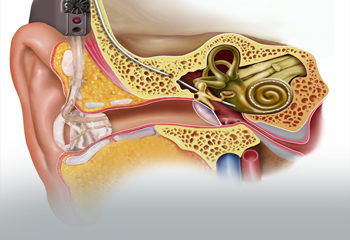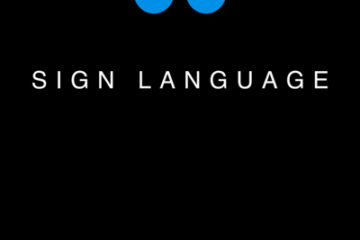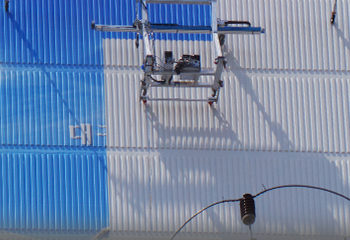
Mitosis Detection In Cancer Histological Images
Ms. Chetna Kaushal Phd Scholar, CSE
Chitkara University
Ms. Chetna Kaushal Phd Scholar, CSE
Chitkara University
Mitosis Detection In Cancer Histological Images

Breast cancer is the one of the most common cancer among women and a major cause of increased mortality rate worldwide. The mitoses give an important indicator of the invasive breast carcinoma and hence are of great significance in diagnosis and treatment. However, the manual annotation by histologists is time-consuming and subjective with limited reproducibility. To this end, the development of automatic detection methods is essential for improving the efficiency and reliability of pathological examination. However, automatic mitosis detection in breast histology images is a very challenging task for several reasons. As the mitosis is characterized by a large variety of shape con- figurations, which are related to the high variation of biological structures. Also due to resemblance to other cell types such as apoptotic cells which carry similar morphological appearance with mitosis resulting in lots of false positives in the detection process. Further, the different conditions of histology image acquisition process, including sampling, cutting, staining, and digitalizing, increase the variabilities of mitosis appearance. This is common when the tissue samples are acquired from different patients or at different time slots. The number of mitoses per tissue area gives an important aggressiveness indication of the invasive breast carcinoma. However, automatic mitosis detection in histology images remains a challenging problem. Traditional methods either employ hand-crafted features to discriminate mitoses from other cells or construct a pixel-wise classifier to label every pixel in a sliding window way. While the former suffers from the large shape variation of mitoses and the existence of many mimics with a similar appearance, the slow speed of the later prohibits its use in clinical practice. The number of mitotic figures visible in histology sections is an important indicator for cancer screening and assessment. Normally, the count is performed manually by histologists, but automating the process could reduce its time and costs (thus making it more accessible), minimize errors, and improve the comparability of results obtained in different labs. Mitosis detection is very hard. In fact, mitosis is a complex process during which a cell nucleus undergoes various transformations.
INTERNSHIPS ARE CLOSED FOR THIS PROJECT.
Principal Investigator:
Ms. Chetna Kaushal Phd Scholar, CSE
Chitkara University
Funding- Internal Project Start Date -
Evaluating Text Comparison Mechanisms For Authorship Authenticity

A number of resources are available on the internet, people are habitual of using them without proper citation of the original source or without giving credit to the author.The content directly taken from pre-published sources is called plagiarized text. Text Comparison is needed to check unauthorized/ illegal usage of views, ideas & publications.So there is a need to find a suitable technique to find similarity between two documents.There are many text matching mechanisms such as Levenshtein’s Edit Distance, Cosine Similarity measure, Jaccard Similarity Coefficient, N gram, Hamming Distance, Scam Algorithm, Finger Printing, Substring Matching etc. But all these techniques have disadvantages like:
- Some techniques work on syntax whereas some of them are semantically sensitive.
- Many techniques fail due to the lack of computational resources and processing takes a large amount of time.
The chosen techniques are primitive, moderate and advanced respectively. So, the aim here is to enhance the aforesaid algorithms in terms of similarity index, time and to provide graphical comparison reports.
Internships closed for this project.
Principal Investigator:
Ms. Shama ME Scholar, CSE
Funding- Internal Project Start Date - 03/04/2015

Cyber technology communication for women safety
Dr. Renuka Gupta, Dr. Kiran Mehta, Dr. K.S. Bath
Dr. Renuka Gupta, Dr. Kiran Mehta, Dr. K.S. Bath
Cyber technology communication for women safety

In India, IT Act 2000 has been established to combat the challenges of cyber crime which has become a global phenomenon. It must be well understood that victimization of women is on the higher side in comparison to men. There are several issues related to cyber crime against women which need to be thoroughly understood as it may have great impact on the security of women.
Even with the increase in the number of enrollment of women for higher education the women in India are still not open minded and shy in reporting crimes against them. The threat of cyber abuses and cyber crimes is more dreadful because of the modus operandi of committing cyber crimes. It is not easy to understand the intention of the culprit. They can escape comfortably and can use different websites therefore to identify the existent of the culprit is more difficult in the case of cyber crimes.
There are various methods of providing cyber security to women in particular and society in general. But it can be possible through two ways. One woman needs to report all cyber crimes against them so that the types of threats can be understood clearly and second, the law needs to give proper security measures to women against cyber crimes.
Therefore the proposed research project is destined to achieve these twin objectives. One is to make women more aware regarding all possible cyber abuses and cyber crimes and informing them to use cyber security measures to keep the privacy of their information. Second is to suggest various improvement in IT Act 2000 to make it stronger and ensure victimized women that strong actions will be taken against the offender.
INTERNSHIPS ARE CLOSED FOR THIS PROJECT.
Principal Investigator:
Dr. Renuka Gupta, Dr. Kiran Mehta, Dr. K.S. Bath
Funding- External Project Start Date - 01/04/2016
Investigations Aimed At Producing Diamond Like Carbon Films With Extremely Low Values Of Stress And Broad Range Of Dielectric Constant

Diamond Like carbon films boasts of a wide variety of properties like high hardness, high Young’s modulus, high smoothness and bio compatibility etc. Owing to a large spectrum of properties in different directions, DLC films have found applications in fields like tribology, ophthalmic glasses, prosthetic joints and also in microelectronics.
Mentioned project centred around design and development of a DC based Saddle field Fast Atom Beam (FAB) source system and then using it for deposition of DLC films on silicon substrates with a broad range of dielectric constants and extremely low values of stress.
As an outcome of the project, DLC films could be deposited with dielectric constants varying from 1.6 to 3.1 with controlled values of stress.
Internships closed for this project.
Principal Investigator:
Dr. Rajnish Sharma
Funding- External Project Start Date - 01/04/2015
Design, Integration And Evaluation Of Cochlear Implant ASIC By Investigation And Implementation Of Best Ultra Low Power Techniques

Low power methods will definitely play its importance in the advancement of ultra low power digital VLSI design for recent biomedical technology, but these power reduction methods and their comparisons have never been surveyed so far. There exists a gap in the selection of best ultra low power techniques for designing of digital biomedical implants. The essential aim of this research is to fill the existing gap by doing investigation of various ultra low power techniques for implantable digital electronics by analyzing sources of power dissipation, power estimation and optimization techniques at different level of design abstraction layers, various technologies for low power design, comparison of low power design techniques and their applications in bio-inspired systems. The cochlear implant is one of the most required neural artificial designs in India. It is the most effective artificial design in terms of restoration of function. Being a most successful neural artificial design, cochlear implants have provided partial hearing to more than 120 000 persons worldwide. However a remarkable progress has been made in the development of cochlear implants but there still remains scope for improvements, especially low power and area design of the cochlear implant. Biomedical engineers have played a significant role in the design, integration and evaluation of the cochlear implant system, but the overall success will be achieved when cochlear implants will be available with less cost and good efficiency in terms of less power consumption.
Principal Investigator:
Ms. Anjali Sharma
Funding- Internal Project Start Date - 05/06/2016
Deep mobile face gender recognizer with sound representation for visually impaired people

In today’s era, the smart phone has powerful processors with more computing power than normal computers. This powerful computing power will make people’s life easier. Particularly, nowadays mainstream mobile operating systems including iOS and Android makes life easier and fast. With these OS, smart phones are very helpful for fair sighted people as well as of visually impaired people. The main motivation is to help visually impaired people to “perceive” through the lens of their smart phone. The first aspect of this research work is to have a mechanism that can run on the phone for the recognizing faces, their gender as well as age in an unconstrained environment. Therefore, the main goal is to classify the gender and build that with future functions in mind, so that the app can be relatively easily extended to be able to recognise other things in the future, for example, identify people.
INTERNSHIPS ARE CLOSED FOR THIS PROJECT.
Principal Investigator:
Mr. Chetan Sharma
Funding- Internal Project Start Date - 03/01/2017
The FallGuard For Smart Homes And Smart Society

Falls among the elderly occur frequently. Approximately 30% of people over 65 falls accidentally each year and for those over 80 this rate raises up to 50%. Falls are an important factor in the health limitations of the elderly due to high morbidity caused by physical and psychological consequences; loss of independence and even death. The fallguard project proposes a new generation fall detector which is expected to effectively minimize the consequences of falls in the elderly. FallGuard would automatically detect a fall and immediately activate a safety system to ensure minimal injury to the fall victim. Furthermore, it would also send SOS signal to health services, so as to allow an early intervention.
INTERNSHIPS ARE CLOSED FOR THIS PROJECT.
Principal Investigator:
Dr. Jaiteg Singh
Funding- Internal Project Start Date - 05/06/2016
Selling Brands Through Brains

The global market economy is changing from a sellers’ market to a buyers’ market. The emerging field of neuromarketing, which makes use of brain research in a managerial context, has gained increasing popularity in the academic literature as well as the practical world. Neuromarketing is the branch of neuroscience research that aims at studying the consumer behaviour through the brain’s instinctive processes and responses. Such information can further be applied to understand marketing trends, explaining consumer’s preferences, motivations, expectations, predicting human behaviour and evaluating successes or failures of advertising messages. The global market for neuromarketing technology reached $21.0 million in 2015. The market is expected to reach $50.3 million by 2021 from $22.0 million in 2016, increasing at a compound annual growth rate (CAGR) of 18.0% from 2016 to 2021. One very big mega trend in the global economy is that of Big Data or Big Analytics. According to a report published by The Data Warehousing Institute, sentiment analytics and trending imbued with big data analytics can contribute up to 24% improvement in sales and marketing. One very attractive opportunity in big data is linking analytics with neuromarketing. This fact has been duly supported by the Gartner’s hype cycle graph, where the anticipated the scope of neuromarketing tactics and big data is expected to last for next ten years from now. Noteworthy, India, on the other hand, is the seventh largest nation in size, second most populated country and the seventh largest economy in the world. Further, the government of India is promoting make in India ideology under which, five industrial corridor projects have been identified, planned and launched by the Government of India in the Union Budget of 2014-2015, to provide an impetus to industrialization and planned urbanization. In each of these corridors, manufacturing will be a key economic driver and these projects are seen as critical in raising the share of manufacturing in India’s Gross Domestic Product from the current levels of 15% to 16% to 25% by 2022. The Micro, Small and Medium Enterprises (MSMEs) sector assumes a pivotal role in driving the growth engine and to ensure epitomizing vitality. According to Fortune from Times Inc., nine out of ten startups fail because of reasons like failing to understand the market need, not choosing the right team, poor marketing, ignoring consumers and limited liquid assets etc. There is no direct platform available for MSMEs to evaluate their marketing strategies, product design etc. which could prove to be a substitute for extensive and expensive market surveys followed by traditional way of analysing the collected data. The quality of data collected through surveys, interviews and questionnaires entirely depends upon the technical expertise of the investigator whereas nontraditional methods of collecting user response like eye tracking, electroencephalogramy (EEG), speech, and facial action coding can not only provide quality data but can also lead to precise business conclusions and decisions. User sentiment analysis information is already being used by businesses, governments and individuals to make timely and profitable decisions. Neuromarketing makes use of techniques like Neuro-Metrics, Eye-Tracking, Bio-Metrics, Implicit Response Testing and Facial Action Coding to understand/record human reactions. Sentiments analysis if infused with neuromarketing techniques can further provide automated mining of attitudes, opinions, expressions and emotions fromtext, speech, emotion, neuron activity and other database sources for making profitable business decisions. Data provided by neuromarketing studies are pictures and numbers, statistics. Neuro‐imagingtechnology, through its technical specifications, is able to provide accurate data for analysis and a cost effective solution to study market trends, hence providing major support to any economy.
Number of intern positions available in the project: 2
Principal Investigator:
Dr Jaiteg Singh
Funding- Internal Project Start Date - 01/11/2017

Language Resources for Auditory Impaired Person
Dr. Virender Kadyan
Team Members:
Mr. Sunny Singh (PhD Scholar)
Mr. Puneet Bawa (M.E. Scholar)
Dr. Virender Kadyan
Team Members:
Mr. Sunny Singh (PhD Scholar)
Mr. Puneet Bawa (M.E. Scholar)
Language Resources for Auditory Impaired Person

This project will help in formation of a GUI based Punjabi Speech To Text Interface for the blind children. It processed the input speech utterances through open source toolkit like Kaldi.
Principal Investigator:
Dr. Virender Kadyan
Team Members:
Mr. Sunny Singh (PhD Scholar)
Mr. Puneet Bawa (M.E. Scholar)
Funding- External Project Start Date - 11/01/2016
Child Ensign

Broad domain – Computer Science and Engineering
Focused domain – Sign Language, Animation In the proposed research work we will try to build the system(mobile application/Desktop application) to convert the typed text to sign.
There are special schools for these blind people where sign language is taught. Other than sign, the English language is also taught to some extent so that a person can communicate (to a non-signer) in English by writing keywords because the sentence formation is difficult for these students, but the fact is majority of the people in rural areas of Punjab neither understand Sign nor English language, they only communicate in their native language ‘Punjabi’. This application will especially help to a child to start learning at their home place before joining to any deaf school. it can act like an e-learning based system for preschoolers.
Skill Set Required: A team of 2 Members: 1 Punjabi Language Speaker 1 Python/Java Coder
No. of intern positions available in the project: 02
Principal Investigator:
Er Virender Kadyan
Funding- Internal Project Start Date - 01/11/2017
E-Teaching Assistant

Broad domain: Electronics and Computer Science Engineering
Focused domain: Arduino Board Programming, Raspberry Pi, FPGA
The present invention discloses electronic assistive device for classroom teaching. This device assists teacher to share content like audio, video, presentation slides, documents, exercise, demonstrations etc. to the particular recipient. The hardware device is able to connect with android/windows based smart phones or laptops of students using the intranet. The device is smart enough to identify the targeted audience, it is a simple device, the operational functionalities are simple enough to be understood by anyone and it also a secured device and most importantly a wireless device. The device shares the material in a single click and is able to log all entries. It freezes the student’s device to display the teaching materials in online and support all types of content deliveries like audio/ video/ multimedia/ text/ presentations. Moreover, it is a cost effective device. The advantage of the device is that it is a simple device having portable Wi-Fi and one point nodal communication.
Number of intern positions available in the project – 3
Principal Investigator:
Dr K.R Ramkumar
Funding- Internal Project Start Date - 01/11/2017
Autonomous Wall climbing and Painting Device

Broad domain – Mechanical Engineering, Electronics & Computer Science
Focused domain – Automation, Sensors, Actuators
The present invention discloses an autonomous wall climbing the machine to be used for painting purpose. The control of the machine is dual in the sense that it can be controlled either manually with the PLC control unit available on the ground or machine itself can take self-control of its movement also as it is fully autonomous. Sensors are integrated with the machine which not only avoids an obstacle on the wall such as a window, glass sheet, pipes, hollow space etc. but also calculates the information about the specific area to be painted. The counter embedded with the suction cup counts the number of times the suction cup is used for generating the negative pressure which gives an indication about suction cup replacement before it malfunctions. For the protection of the machine from being fallen from the tall building during its operation, an air bag control unit in conjugation with an acceleration sensor is also embedded with the machine. So, the invention is light weight, cost effective and highly efficient.
No. of intern positions available in the project – 3
Principal Investigator:
Dr K.R.Ramkumar

